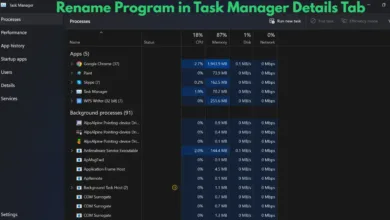Considering Outsourcing Frontend Development in 2024? Let’s Weigh Out the Pros and Cons

Introduction
Outsourcing has become a popular trend in the world of business, with various industries opting to delegate certain tasks or processes to external parties.
Frontend development, which involves designing and coding the user interface of a website or application, is no exception.
As we enter the year 2024, it is essential to evaluate the pros and cons of outsourcing front-end development.
This article aims to provide an in-depth analysis of the advantages and disadvantages of this practice, helping businesses make informed decisions about whether or not to outsource their front-end development needs.
If you are on the verge of choosing the best website development services for your business, you are at the right place at the right time.
So, let’s dive right in.
Pros
1. Cost Savings: One of the primary advantages of outsourcing frontend development is cost savings. Hiring an in-house team for front-end development can be expensive, as it involves salaries, benefits, office space, and equipment.
Outsourcing eliminates these costs as you only pay for the services provided by the external agency or freelancers. Additionally, outsourced teams may be located in countries with lower labor costs, further reducing expenses.
2. Access to Expertise: Outsourcing frontend development allows businesses to tap into a vast talent pool of experienced professionals.
Outsourcing provides businesses with the opportunity to gain access to niche expertise that may not be readily available within their own organization. By partnering with an outsourcing provider, companies can tap into a pool of highly skilled professionals who specialize in specific areas or industries.
These experts possess valuable knowledge and experience in their respective domains, allowing businesses to benefit from their specialized skill sets.
This access to niche expertise can be particularly beneficial in areas where a company lacks the necessary resources or knowledge to perform certain tasks or projects in-house effectively.
With website development services, you get leverage to customize your website at micro and macro levels to effectively target your audience and curate your content to their liking.
3. Time Efficiency: Time is of the essence in any business. Outsourcing front-end development can significantly reduce project timelines.
External agencies or freelancers have established workflows and can dedicate their full attention to the project, resulting in faster turnaround times.
By delegating certain tasks or projects to external experts, companies can free up their internal resources to focus on core activities and strategic initiatives.
Additionally, outsourcing eliminates the need for companies to invest time and effort in hiring, training, and managing additional staff, which can be time-consuming and distract from primary business objectives.
Outsourcing enables companies to operate on a 24/7 basis by engaging providers in different time zones, thus accelerating project timelines and enhancing overall productivity.
Ultimately, outsourcing allows businesses to optimize their time allocation, maximize efficiency, and achieve their goals in a more timely manner.
4. Scalability and Flexibility: Outsourcing gives businesses the flexibility to scale their frontend development needs according to project demands.
Whether it is a small project or a large-scale endeavor, external agencies or freelancers can provide the necessary resources to accommodate projects of varying contours.
This scalability enables businesses to adapt quickly to changing requirements and ensures that front-end development does not become a bottleneck.
5. Risk Mitigation: Frontend development involves constant changes and updates, including browser compatibility, responsive design, and user experience enhancements.
By outsourcing front-end development, businesses can mitigate risks associated with keeping up with these evolving trends.
External agencies or freelancers stay up-to-date with the latest industry standards and ensure that websites or applications are developed with the best practices in mind.
Cons
1. Communication Challenges: When outsourcing to a company in a different country, language differences can lead to misunderstandings, confusion, and delayed project completion.
Cultural differences can also impact communication, as different cultures may have varying communication styles, norms, and expectations. Time zone differences can further complicate communication, as coordinating meetings and real-time collaboration may be challenging.
Additionally, outsourcing often involves working with remote teams, which can result in a lack of face-to-face interaction and the loss of non-verbal cues, making it harder to build rapport and maintain clear communication.
These communication challenges, though significant, can be mitigated through effective communication strategies, such as establishing clear communication channels, providing detailed project requirements, leveraging technology for real-time collaboration, and fostering a culture of open and proactive communication between both parties.
2. Lack of Control: When outsourcing front-end development, businesses relinquish some control over the development process.
Unlike an in-house team, external agencies or freelancers may prioritize other projects or struggle to align with the business’s vision and standards.
This lack of control over the development process may result in delays, unsatisfactory outcomes, or the need for extensive revisions.
3. Data Security Concerns: Outsourcing frontend development involves sharing sensitive information, such as design files, proprietary code, or user data, with external parties.
Businesses must consider and address data security concerns, ensuring that the external agency or freelancer has robust security measures in place to protect confidential information. Any breach in data security can lead to reputational damage and legal ramifications.
4. Dependency on External Parties: Outsourcing front-end development creates a dependency on external parties. Businesses rely on the expertise and availability of external agencies or freelancers to complete projects successfully.
If the chosen partner faces any issues, such as financial difficulties or resource shortages, it may negatively impact project timelines and deliverables. The risk of relying solely on external parties should be carefully evaluated.
5. Potential Quality and Consistency Issues: While outsourcing frontend development offers access to expertise, there may be concerns regarding the quality and consistency of the delivered work.
Not all external agencies or freelancers may provide the same level of quality or adhere to the business’s standards.
Prior research, portfolio evaluation, and clear deliverables should be established to ensure that the quality and consistency of the front-end development meet expectations.
Read Also: Maximizing ROI: Strategies for Direct Nutra Advertisers in the Digital Age
Wrapping It Up
As businesses evaluate their options for front-end development in 2024, the choice to outsource comes with both advantages and disadvantages.
It is crucial to carefully consider the specific needs, goals, and resources of your business. Cost savings, access to expertise, time efficiency, scalability, and risk mitigation are significant pros of outsourcing front-end development.
However, challenges such as communication issues, lack of control, data security concerns, dependency on external parties, and potential quality and consistency issues should not be overlooked.
By weighing these pros and cons, businesses can make well-informed decisions that align with their overall objectives and ensure successful front-end development outcomes.





